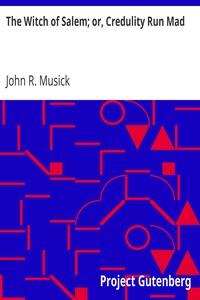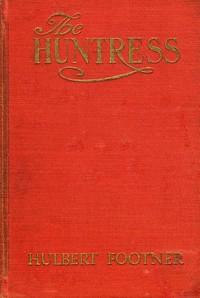Read this ebook for free! No credit card needed, absolutely nothing to pay.
Words: 113929 in 22 pages
This is an ebook sharing website. You can read the uploaded ebooks for free here. No credit cards needed, nothing to pay. If you want to own a digital copy of the ebook, or want to read offline with your favorite ebook-reader, then you can choose to buy and download the ebook.


: Homer's Odyssey A Commentary by Snider Denton Jaques - Homer. Odyssey; Epic poetry Greek History and criticism; Odysseus King of Ithaca (Mythological character) In literature
to line 328, where Nestor ends his story of the Returns and suggests the journey to Menelaus for another phase thereof: "the sun set and darkness came on." The second portion embraces the rest of the Book. Again we must note that the fundamental Homeric division into the Upper and Lower Worlds is what divides the Book, thus giving to the same its organic principle.
The religious setting of Nestor's world has been noticed already. Into it Telemachus comes, out of a realm of violence; it must indicate some cure for the ills of Ithaca. But he is now to show himself a man. Pallas orders him to put aside his youthful modesty, and boldly make the inquiry concerning his father. And here the Goddess utters a remark which the student may well ponder: "Some things thou wilt think of in thine own mind, but a God will suggest others." Again the Homeric dualism--the human and the divine--and also their harmony; the two elements must come together in every high thought or action. The double relation of the individual--to himself and to the God--is necessary for all worthy speech; his own activity and that of the deity run together in true discourse as well as in true action. So the whole poem is made up of man's self-determined energy and the interference of the Gods; yet both are to be seen as ultimately one in the deed.
The new-comers are asked to pray, and we hear the famous utterance, which is characteristic of Nestor's world, "All men have need of the Gods." This is said by one of his sons. Pallas makes the prayer, a happy one, which brings forth a feeling of harmony between the strangers and all the People. The sympathy is complete, and Telemachus can proceed to ask concerning his father, after he has told who he himself is, and whence he has come. In response, Nestor begins to tell the fateful story of the Returns after the fall of Troy. In his narrative we behold the starting-point of the calamities, the difference between Agamemnon and Menelaus, followed by a series of separations in succession. "Zeus planned for them a sad Return," which, however, was their own fault, "for all were neither wise nor just." It is clear that the Greek unity is utterly broken, a spiritual disruption sets in after the capture of the city. It is, indeed, the new problem, this Return to peace and institutional order after ten years' training to violence. Such is the penalty of all war, however just and necessary; after it is over, the fighting cannot stop at once, and so the victors divide into two camps and continue the fight. Nestor gives the picture of these repeated divisions; once, twice, thrice the breach occurs; first he separates from Agamemnon, the second time from Ulysses, the third time from Menelaus. He will go directly home, and thus he has to leave the others behind; the scission is not in him as in them; he can be restored, in fact he restores himself. He has the instinctive pre-Trojan character still, being an old man; but Ulysses has lost that, and so separates from Nestor, though never before had they differed "in the Council of the Chiefs or in the Assembly of the People." But Ulysses has to return by a far different road, and now each of the two wise men takes his own way, though both have to return.
Aged Nestor manifestly does not belong to the new epoch, he seems to have no sense of the deep spiritual struggle involved. He instinctively went home, shunning the conflict; the others could not. In the Iliad the relation between the two wise men, Nestor and Ulysses, is subtly yet clearly drawn; the one--the younger man--has creative intelligence, the other--the older man--has appreciative intelligence. In the Odyssey, the relation is plainly evolved out of that described in the Iliad; the one is the boundless striver, the other rests in the established order of things.
Nestor, therefore, cannot tell much about Ulysses, who lies quite out of his horizon, at least in the Odyssey. He can only give hope that the man of wisdom will yet return. This Telemachus doubts, dropping into one of his low human moods, even in the presence of Pallas, who rebukes him sharply. It is, indeed, the great lesson; he must have faith in the reality of the Gods, this is the basis of all his future progress, the chief attainment of wisdom. The young man must not fall away into denial, he must be taught that there is a divine order in the world. Old Homer, too, had his notions about religion in education, and the Goddess herself is here introduced giving a lesson.
Nestor, though unable himself to give much information about the Return, can point to the second grand Returner, Menelaus, who has lately come from a distant land, and may have something to say. In fact Menelaus was the last to separate from Nestor, Ulysses had separated long before.
One other story Nestor tells with great sympathy, that of Agamemnon, who represents a still different form of the Return. The great leader of the Greeks can master the Trojan difficulty, can even get back to home and country, but these are ultimately lost to him by his faithless spouse. Still, after the father's death, the son Orestes restores Family and State. Therein Telemachus sees an image of himself, the son, who is to slay his mother's suitors; he sees, too, the possible fate of his father. Ulysses has essentially the same problem as Agamemnon, though he has not the faithless wife in addition; Telemachus beholds his duty in the deed of Orestes, according to Greek consciousness. We shall see hereafter how Ulysses takes due precaution not to be slain in his own land, as Agamemnon was. In disguise he will go to his own palace and carefully note the situation in advance, and then strike the blow of deliverance.
Several times Homer repeats in the Odyssey the tragic story of Agamemnon, the great Leader of the Greeks at Troy. An awe-inspiring tale of destiny; out of it AEschylus will develop his great tragedy, the Oresteia. Indeed the epos develops into tragedy with the full mythical unfolding of this story. AEschylus will deepen the motives into internal collisions; he will show the right and the wrong in Agamemnon, and even in Clytemnestra. Orestes, however beneficent his deed in avenging his father, will not escape the counterstroke; AEschylus will send after him the Furies for the guilt of having murdered his mother. Thus the double nature of the deed, its reward and its penalty, unfolds out of Homer into AEschylus, and creates the Greek drama as we know it at present.
Nestor has now told what lay in the immediate circle of his experience: the Return direct through Hellas. Again he mentions the last separation; it was that of himself from Menelaus, when the latter was swept beyond the limit of Hellas into Egypt, from which he has now returned. What next? Evidently the young man must be sent to him at Sparta in order to share in this larger circle of experience, extending to the Orient. So Greece points to the East in many ways; Nestor, the purely Hellenic soul, knows of that wider knowledge, though it be not his, and he knows that it should be possessed.
In this Book as elsewhere in the Odyssey the grand background is the Trojan war. The incidents of the Iliad are hardly alluded to, but are certainly taken for granted; the Post-Iliad is the field of interest, for in it the Returns take place. Thus the two great poems of Homer join together and show themselves as complements of each other.
Now comes the separation which marks the second portion of the Book. Pallas, in the guise of Mentor, coincides with Nestor in advising Telemachus to pay a visit to Menelaus, and then she departs, "sailing off like a sea-eagle," whereat great astonishment from all present. That is, she reveals herself; all recognize the Goddess, and probably that is the reason why she can no longer stay. She has become internal. Telemachus is now conscious, as she disappears, and he has his own wisdom; he has seen Pallas, and so he must go without her to Sparta. Hardly does he need her longer, being started upon the path of wisdom to know wisdom. At the court of Nestor, with its deeply religious atmosphere, she can appear; but she declines to go with him in person to Menelaus, though she advises the journey. All of which, to the sympathetic reader, has its significance. Still Pallas has by no means vanished out of the career of Telemachus; she at present, however, leaves him to himself, as she often does.
Nestor, too, responds to the marvelous incident in true accord with his character; he invokes her with prayer and institutes a grand sacrifice, which is now described in a good deal of detail. Just as the Book opens with a sacrifice to a deity, so it closes with one--the two form the setting of the whole description. Thus the recognition of the Gods is everywhere set forth in Nestor's world; he is the man of faith, of primitive, immediate faith, which has never felt the doubt.
Free books android app tbrJar TBR JAR Read Free books online gutenberg
More posts by @FreeBooks

: The Swiss Family Robinson by Wyss Johann David - Islands Fiction; Survival Fiction; Family life Fiction


: The Story Girl by Montgomery L M Lucy Maud - Cousins Fiction; Prince Edward Island Fiction; Storytellers Fiction





